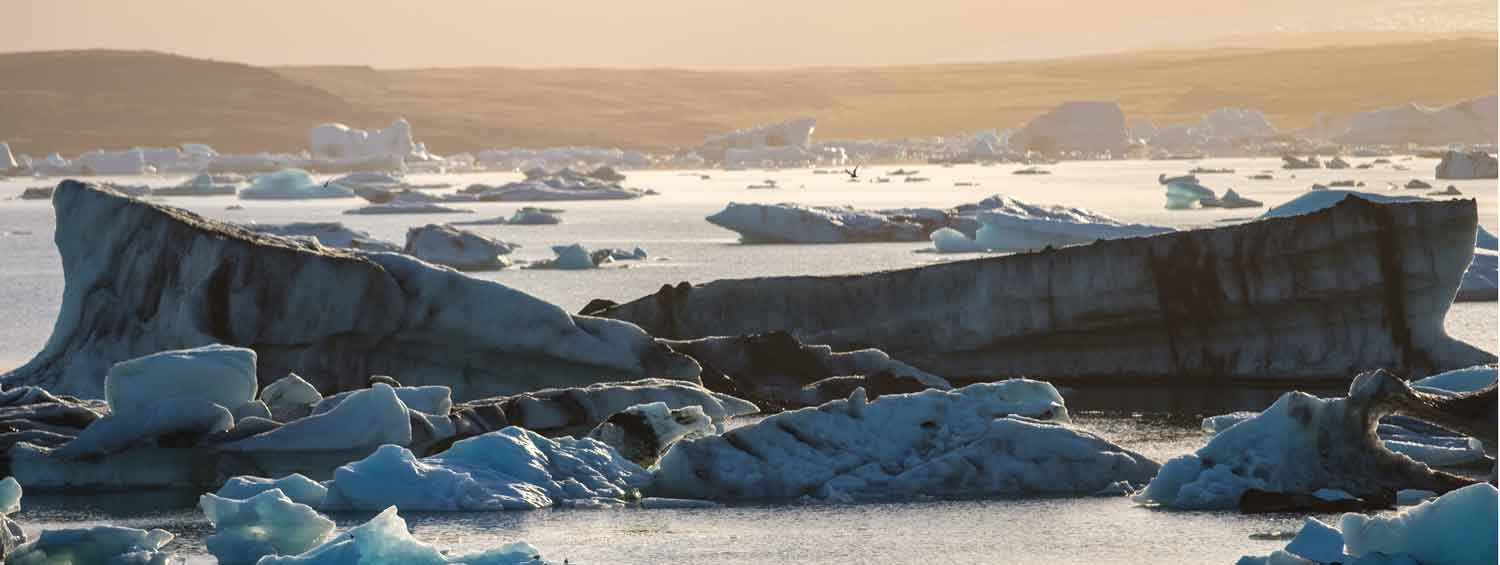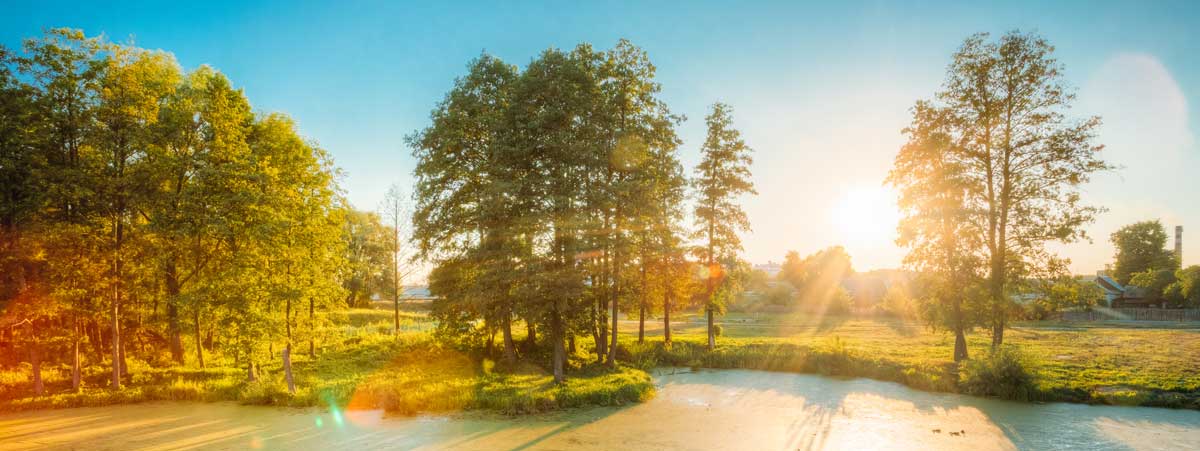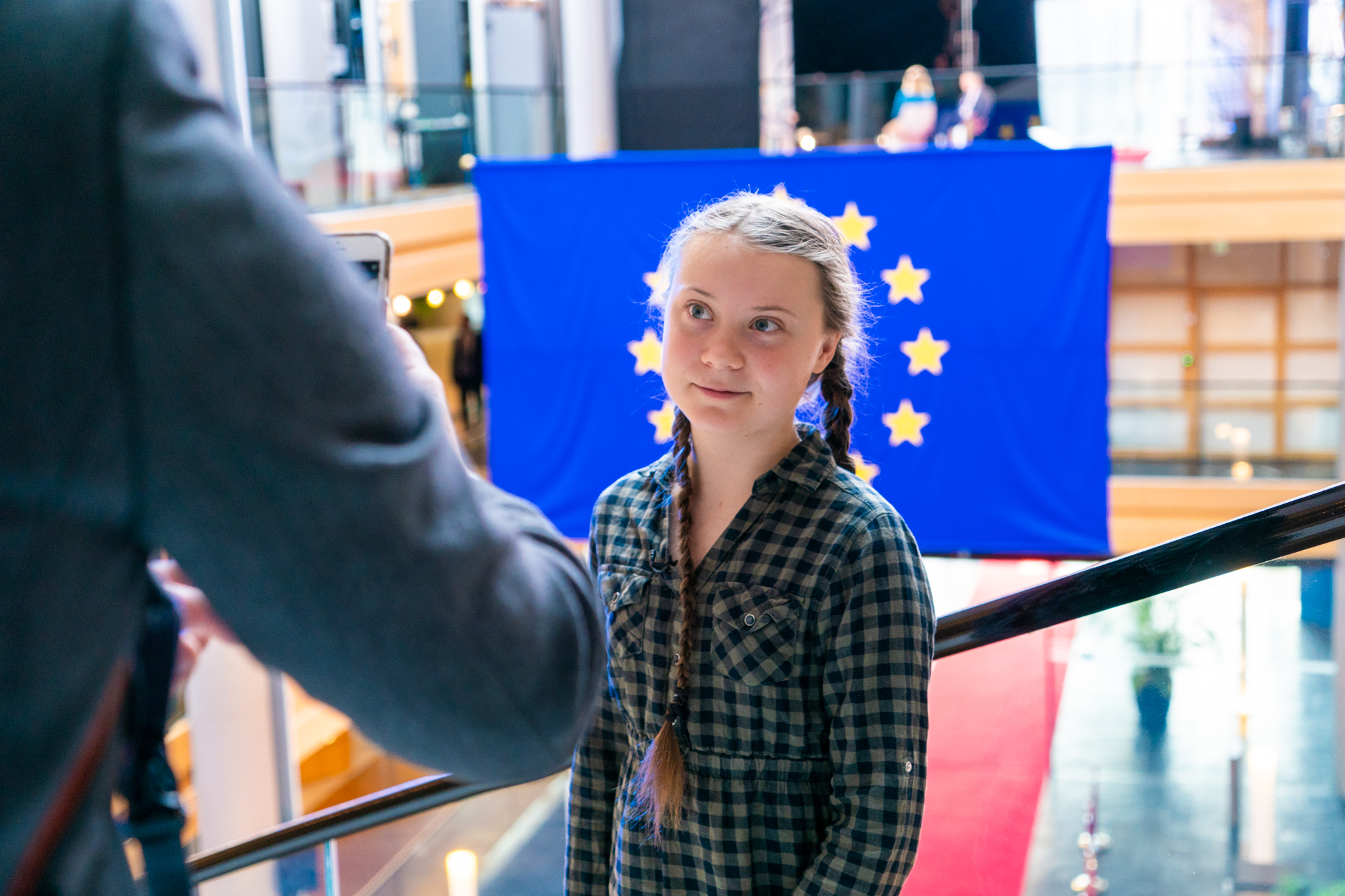

‘Why should I be studying for a future that soon may be no more, when no one is doing anything to save that future?’ That was sixteen-year old Greta Thunberg speaking at the United Nations Climate Change Conference last year, later addressing the World Economic Forum in Davos in January 2019 she told the assembled leaders ‘I don’t want you to be hopeful. I want you to panic.’ Is she right?
How should we as Christians respond? Is climate change real? Should we panic? Most serious academicians and scientists would agree that climate change is real. The global average temperature has risen by about 1°C over the last 150 years. Where there is no agreement is on how much ‘human activity’ has actively contributed to the warming.
What is the harm caused by warming and how should we look at the future? Most of the dire predictions quoted by the eco-warriors are based on computer models which have been wrong about 95% of the time over the past 18 years. The predictions were two to three times higher than what has actually been observed. There does not seem to be a strong correlation between atmospheric carbon dioxide concentration and global average temperature.
I am not a scientist, but as a Christian, how does this affect my worldview, or how does my worldview affect my take on the issues at hand? Many new technologies proposed are out of the reach of the poor. As Christians how do we balance our concern for poverty with care for the world?
The other equally if not more important question I have is, how much do the questions themselves reflect what philosopher John Grey calls a ‘secular reincarnation of Christian beliefs’? Most of what we hear seems ‘apocalyptic’. A lot of what seems to be going around as someone said seems to ‘have replaced fundamental second-coming religion’ or as John Stonestreet says, ‘modern discourse is often a parody of Christian ideas and concepts’.
In a world where naturalism is the predominant world view and there is no sustaining creator, Greta is right. She has no future and no one who can do anything about it. The ‘Extinction Rebellion’ have the same world view. A futility that naturally comes from living in a meaningless universe. On the other hand, the tree huggers and PETA for example, are driven by a new-age pantheistic worldview, one in which mother nature is in reality being worshipped.
Where do we stand? Perhaps the best place is to go back to the very beginning. What did God have in mind when he created the world?
Genesis 1:1 In the beginning God created the heavens and the earth
In the beginning God. Before anything there was God. One of the fundamental pillars of the Christian worldview is that whatever the process or timeline of creation, it was initiated by God who existed in eternity before there was a beginning. The question then is not so much ‘how’ but ‘who’. The naturalist does not accept this. For them a series of random events resulted in the universe and world we live in today. Hence apart from having no ultimate purpose, it would then logically continue to be subject to random events and have no real future either. Greta has every reason to be concerned.

The biblical account however stresses that there was a Creator; that the world came out of a creative mind and right from the start affirms the goodness of creation. The goodness of creation is affirmed six times, after day one, three, four, five, six and a second time after the creation of humanity, with the addition of “very” at the end of the chapter. Yet as we look around, nature seems to be at war with itself; cyclones, tsunamis and a brutal food chain. The poet Lord Tennyson wrote that nature is “red in tooth and claw.”
As Christians we believe that the world in which we live today is not the same as that which existed in Genesis 1 and 2. The fall, or the outcome of Adam’s disobedience brought in sin, death and an alienation between creation and the Creator at all levels and in all spheres.
Yet we also affirm that creation is good because, as Todd Wilson puts it: “It is reflective of God “. That is, creation reflects or reveals God—his nature and his character, his goodness. He says, ’We’ve focused on the “days,” but the focus is on the “God” who speaks, who reveals, who creates’. Creation ultimately reveals God. Paul to the Romans writes God’s invisible qualities—his eternal power and divine nature are revealed in creation. But creation also reflects the goodness of God—his kindness, his generosity, his graciousness and his love. That’s Common Grace!

God rules
Even when we look at cataclysmic events, we still see his sustaining power and care. The winds and waves still obey the one who spoke them into being. When God addresses Job he tells him about setting boundaries for the sea. So we can trust his care. The world is not hurtling to an uncontrolled oblivion. God is the ruler yet.
It is into this good creation that God himself enters as the Incarnate Son. Yet his life and death remind us that there is something deeply broken with the creation we see today.
As we reach the end of the creation account we come to the creation of man and the purpose with which he was created. 1:26 Then God said, “Let us make mankind in our image, in our likeness, so that they may rule over the fish in the sea and the birds in the sky,… 28 God blessed them and said to them, “Be fruitful and increase in number; fill the earth and subdue it. Rule over the fish in the sea and the birds in the sky and over every living creature that moves on the ground.”
Up to now God ‘said’ and it came to be, but with man God says ‘let us make man’. There is, as someone said, God’s fingerprints on us. Man is made with a purpose: to be fruitful, to fill the earth and subdue it. There were three vital ingredients to this mandate as Charles Price puts it; ‘a righteousness, a relationship, and a responsibility’.
Of all of creation, only man is made in God’s image; humans were made to be a visible reflection of what God is like. Today, because of sin, that reflection is marred. But through the work of the incarnation and the resurrection we are now, as Paul says, being transformed once again into his likeness with ever increasing glory.

Yet we live as fallen human beings among fallen human beings and we need to realise that until the issues of the heart have been dealt with, no amount of legislation or protest can change the innate greed and selfishness that resides in everyone. That is why the gospel is so important. It is not only the answer to the sin problem, it is the answer to all the world’s problems. Recently Attorney General Barr of the United States said that to take the sin question out of the equation is to have ‘the State in the role of Alleviator of Bad Consequences.. while we think we are solving problems we are underwriting them’.
As a result of the fall, not only was man’s relationship with God estranged, the relationship between man and woman was hurt. When God asks Adam, “what happened”? he says ‘The woman you put here with me – she gave me some of the fruit of the tree, and I ate it.’ In other words, “God please don’t blame me ,it’s the woman You put with me.” John Piper, writes: “Here you have the beginning of all domestic violence, all wife-abuse, all rape, all sexual slurs, all the ways men belittle women whom God created in his own image.”
Eve is no better. She blames the serpent and that was the first of a breakdown of all relationships – between parents and children, man to man, man to nature. And so it continues till today. Once again it is only the gospel that can restore all these broken relationships. If Greta is concerned about the apparent apathy, it is because at the heart of it is a ‘heart issue’.
It is also a sovereignty issue which brings us back to the angst of Greta. Man alone was made in God’s image and man alone is mandated to rule over the rest of creation. Genesis 2:15 The LORD God took the man and put him in the Garden of Eden to work it and take care of it.
God’s regent
The mandate was to take care of it. Man was placed as God’s regent to care for creation and that mandate has never been rescinded. Though, because of the fall there is an antagonism between nature and man. Why is this relevant? Because there is an order. Man is the caretaker on God’s behalf. A lot of the hype about the environment today seeks to reverse that order making us ‘children of the Cosmos’ to quote Carl Sagan. But if we are just the result of a random accident, then why should nature have any rights? Why should my rights not trump yours? Ronald Dworkin says ‘If we want to defend rights we must try to discover something beyond utility that argues for those rights’. It only makes sense if there is a Creator and a created order.
And while fallen man has failed many times in carrying out the mandate, the relationship still remains. Biology or nature cannot supersede the responsibility that man has as one made in the image of God.
The Bible has often been summed up as a drama in four acts – creation, fall, redemption and restoration. We have seen acts one and two. Today we are in act three, but like every play each act moves to set up the scene for the following act. When we look at the whole story line we see that Christianity is not only about getting one’s individual sins forgiven so that we can go to heaven. That is an important part but not the end of the story. Tim Keller writes ‘the purpose of Jesus’s coming is to put the whole world right, to renew and restore creation, not to escape it’. It is not just to bring personal forgiveness but to bring justice and shalom to the world. The work of the Spirit of God is not only to save souls but also to care and cultivate the face of the earth.
Only Christianity offers hope for the restoration of the material world. As Christians today we are called to be a part of the restoration. We look forward to the day when ‘Glory to God in the highest’ goes with ‘peace on earth’.
Greta is right to be concerned, but she is looking for the answers in the wrong place. As Christians, we serve a God who is in control: A God who has promised a new heaven and a new earth and has given us a foretaste of that certainty through the resurrection. We can go to school or work tomorrow because we know there is a future and we know who holds our hand.


Nathan Andrews
Nathan is an alumnus of the Said Business School, Oxford and a Member of the Institute of Directors, He currently serves on the Boards of the Oxford Center for Mission Studies OCMS, RZIM India, CBMC India and Asia and the Bethany Trust.
